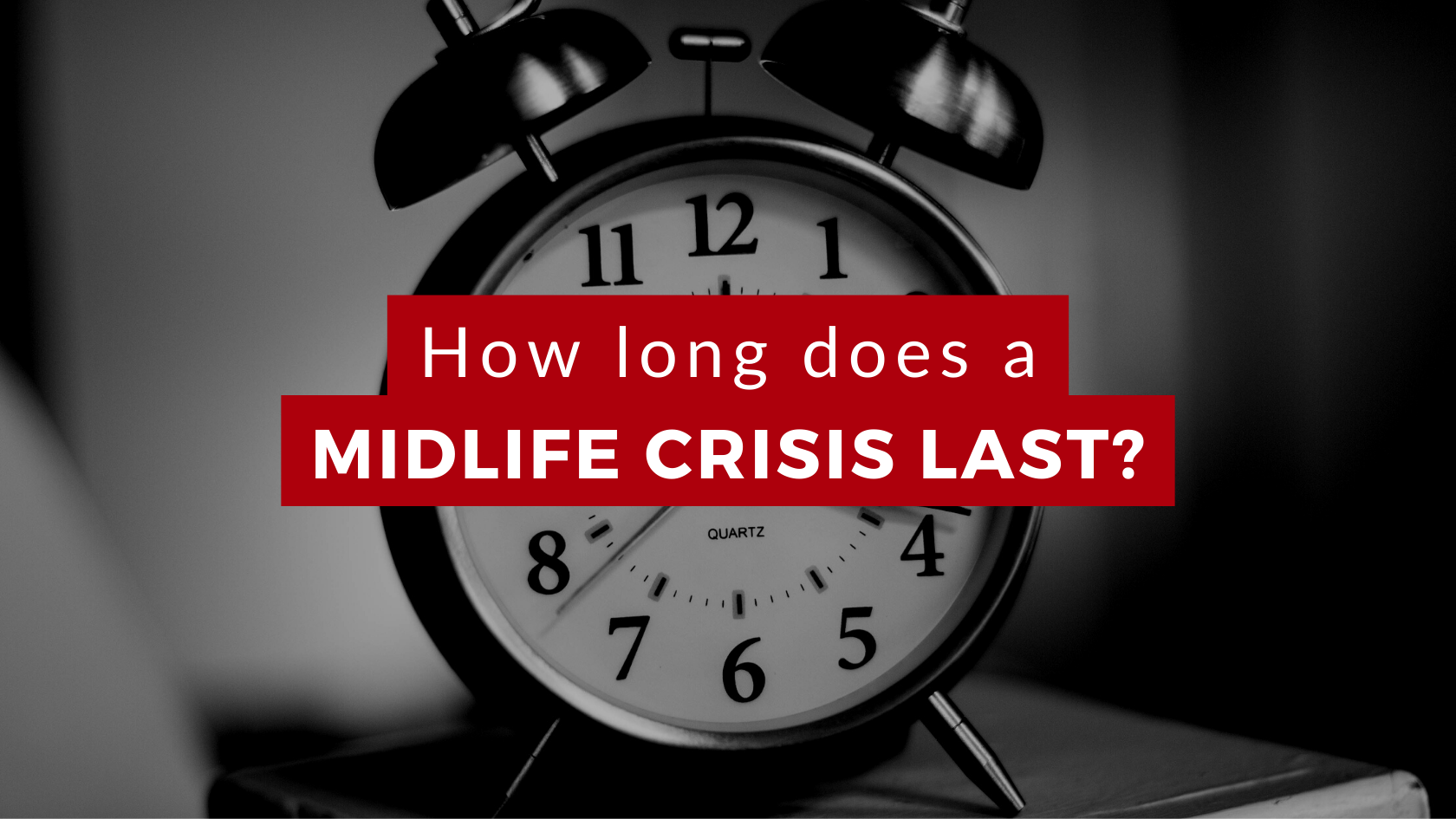When you learn how long a midlife crisis lasts, the next question naturally becomes - are you in or are you out?
Here's what I mean.
When your spouse falls into a midlife crisis, EVERYTHING changes.
It's as if the person you love was taken over by an alien being. Their beliefs are different, they act different. Some say they even walk and talk different.
And when you look in their eyes, you see darkness instead of the person you fell in love with years ago.
Inevitably, you just want this nightmare to be over.
How long is a midlife crisis?
If you simply let a midlife crisis run its course, your partner will go through a series of painful discoveries and eventually come back to themselves. But the length of time varies for men vs women.
How long does midlife crisis last for a woman?
For women, the average length of a midlife crisis averages from 2 to 5 years if you do nothing to shorten her crisis.
How long does midlife crisis last for a man?
For men, a midlife crisis lasts anywhere from 2 to 7 years if you don't take proactive steps to shorten his midlife crisis. In my research, I've found men can generally be more resistant to learning from their mistakes so it can take longer for the midlife crisis fog to lift when it comes to men.
How long does each midlife crisis stage last?
There are 6 stages of midlife crisis men and women go through. The stages are not linear and the timelines are not defined. Expect very little to be certain during this time.
One step forward, two steps back. Then two steps forward again.
You can learn more about each midlife crisis stage by downloading the FREE midlife crisis roadmap below.
FREE INSTANT DOWNLOAD
Midlife Crisis Roadmap Guide
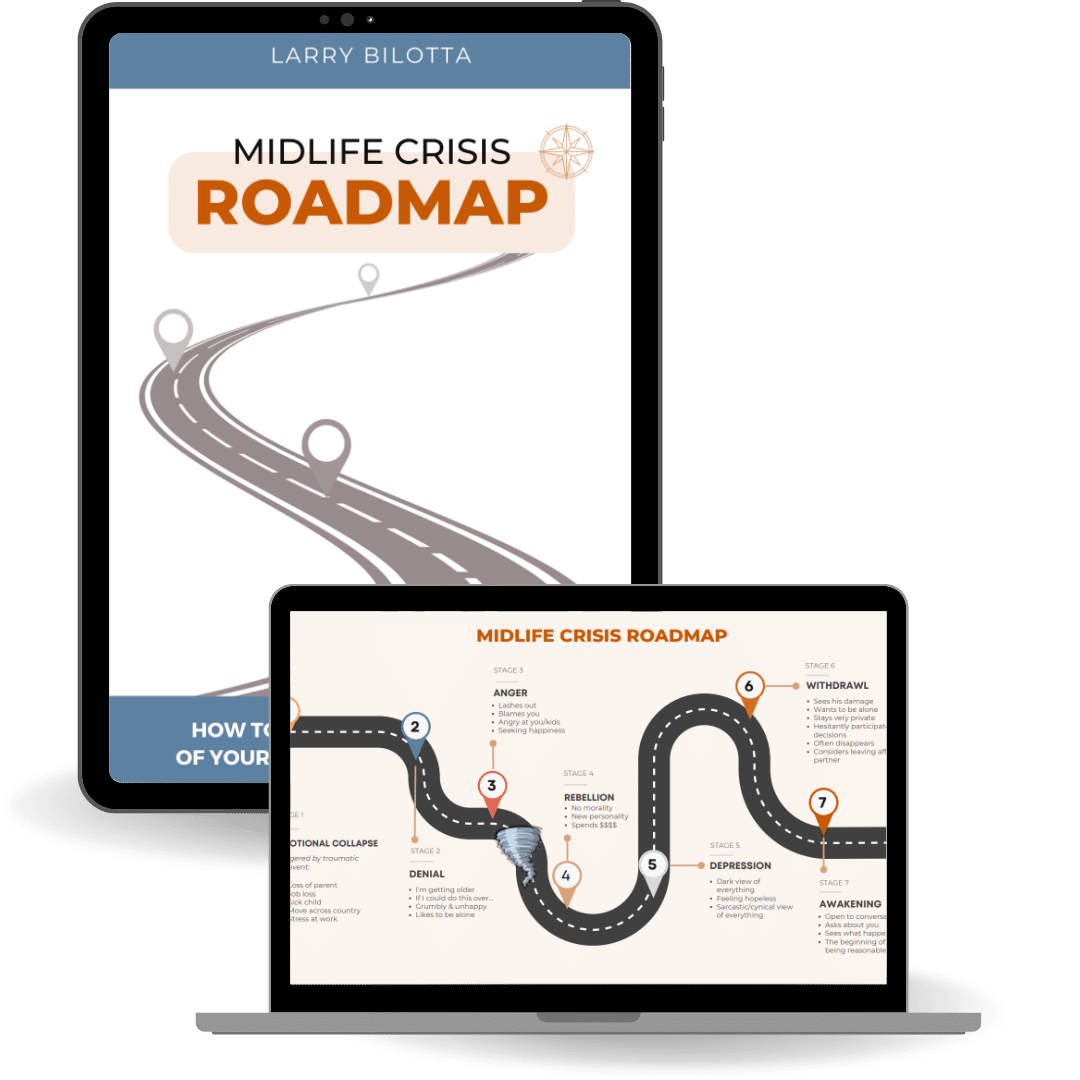
When your spouse or partner falls into a midlife crisis, you’ve left the world of logical thinking and entered into the land of blaming, accusations, emotional, and physical chaos.
Learn why this is happening and how long it will last, along with time-tested and proven strategies to respond, act, and cope - even after a divorce has been filed.
We respect your privacy and will never rent, trade or sell your email address.
In a midlife crisis, plan for the unexpected
So then the question becomes, “can I wait that long?”
Over 35 of working with people in their intimate relationships, I have discovered there is a certain type of person who is very faithful.
They have an undying loyalty and dedication to their most treasured relationships. They have an almost religious belief in the idea of committing to vows.
This often goes hand-in-hand with a religious belief in what God requires. But this can apply to people who are not religious as well.
If your spouse is going through a midlife crisis, you feel anxious and angry that your partner is not cooperating in this promise to honor vows. You might find yourself saying something like “I honor MY vows.”
This idea of honoring vows is held by the very faithful.
They believe vows must be honored and despite your loyalty and honor, it can be a major stumbling block because of what happens to your energy.
This belief in protecting vows can form anger and resistance to divorce.
What you resist, persists
If you hold the energy of anger and resistance as any form of against energy, it can literally extend the length of the midlife crisis.
That brings us to the old saying: “What you resist – persists.”
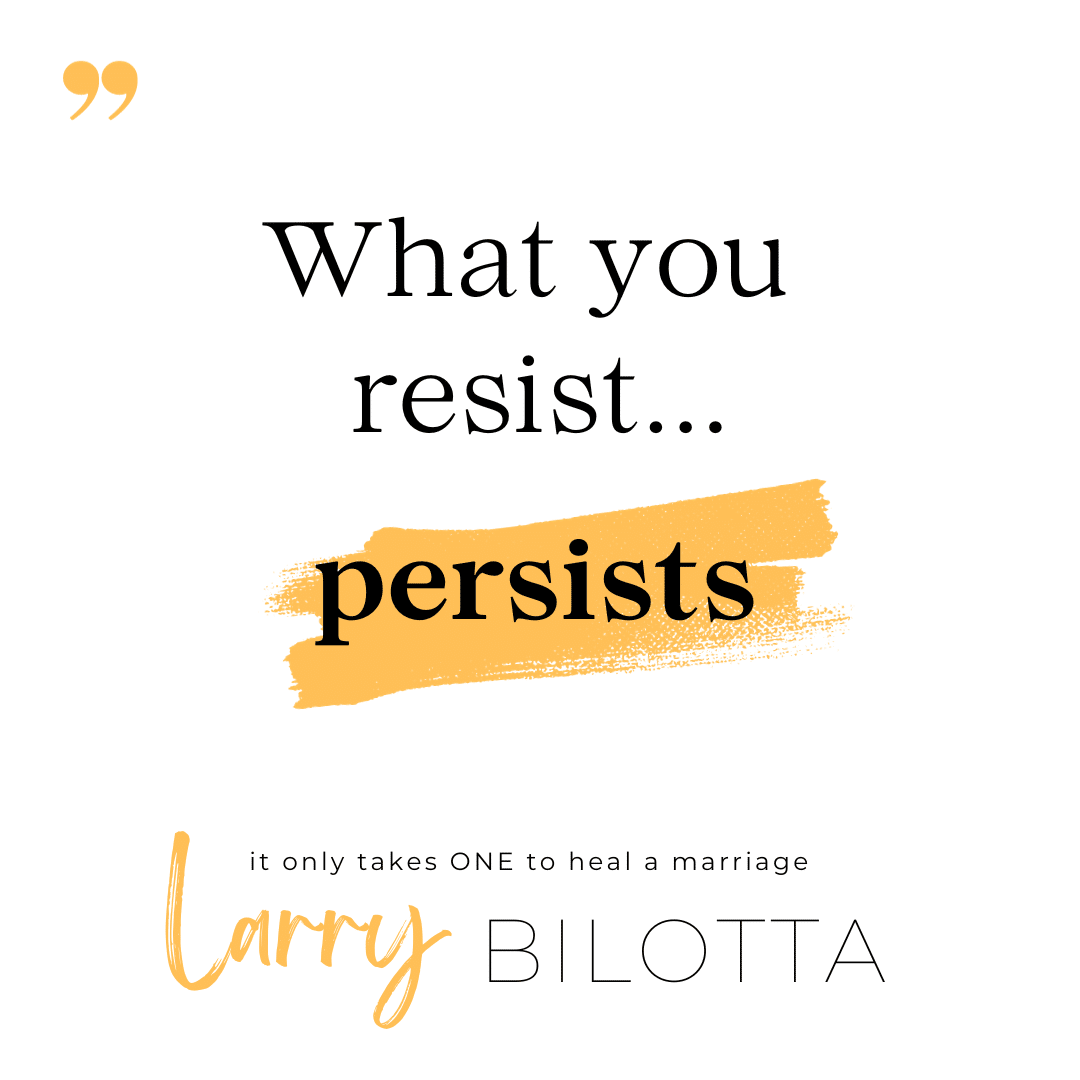
Mindfulness vs. Resistance
If you're against your spouse’s selfishness, against your spouse’s actions toward your children, against your spouse’s abuse of money and morality, this against energy will consume you and be broadcast outward so your spouse feels and reacts to it day after day.

A better approach?
Become an Environment Changer
An environment changer is a person who changes their own internal environment, their own mind.
You can begin your journey toward mastering your own internal thoughts by books on mindfulness like Atomic Habits, Stop Overthinking or The Power of Now by Eckhart Tolle.
Mindfulness is a relatively new term that has become widely accepted as a way to change the environment of your mind and your emotions, in other words changing your energy.
Are you an emotional pinball?
The opposite of mindfulness is being reactive.
That means you react to events throughout the day like a pinball, usually in an emotionally negative way. Each of those negative reactions adds up until you begin to feel anxious and worried on a regular basis.
Mindfulness is the beginning of doing something internally to shorten the length of the midlife crisis as well as many of its effects.
Being a reactive person, or what I call a pinball, will have a painful consequences for yourself and your children, the people you want to protect the most.
What are the signs of a midlife crisis?
The following signs of midlife crisis apply to BOTH men and women - and can be used interchangeably. No sign is specific to one gender or another.
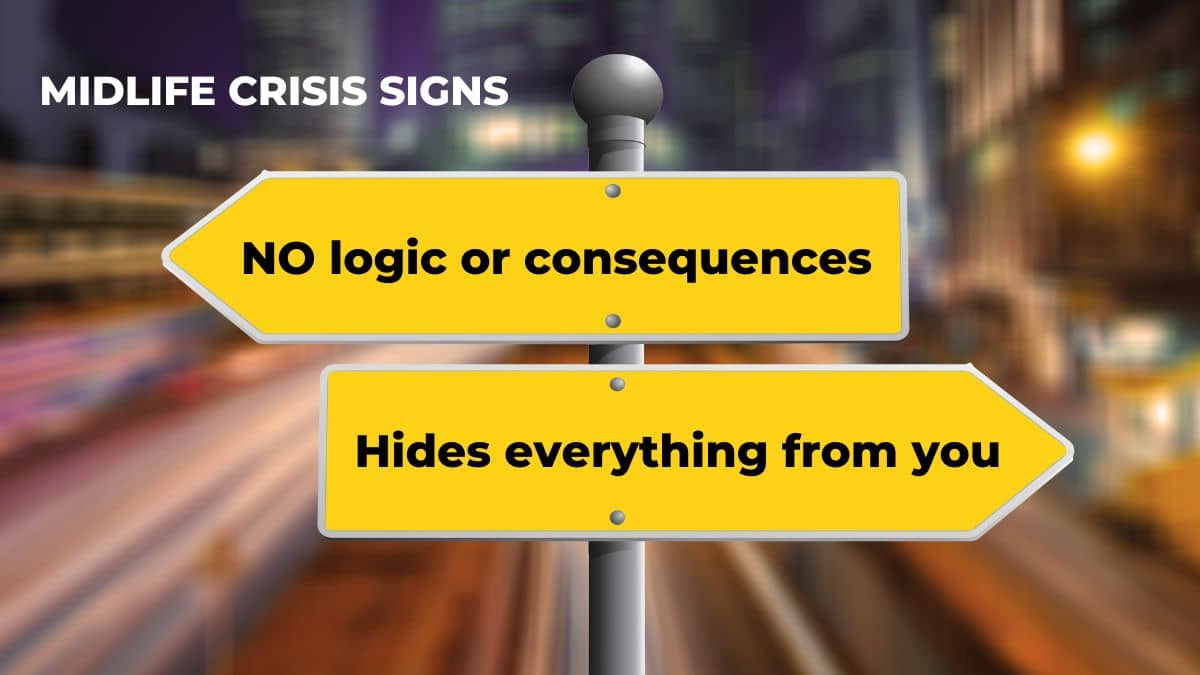
It's a midlife crisis - now what?
Don’t spend time focusing on questions like “How long will this last?”
What you are doing when you ask these kinds of questions is dreading what you are facing and you are fearing that it will never end. This thought process creates very unproductive energy for yourself and your family.
Thinking thoughts about how long a midlife crisis will last is really dwelling on fear. That fear will make you worry and push your spouse further away from you.
Avoid these mistakes
To avoid putting pressure on your spouse, hold off on behavior based actions.
Things like buying flowers, sending, or gifts, heartfelt letters, involving others in your marriage, sharing self-help resources and saying I love you.
In a midlife crisis, these all BACKFIRE.
These actions all fuel the fire because your partner sees it as your way of trying to fix things only as a reaction to the threat of divorce.
“Don’t bother, why didn’t you do this years ago?” is a common reaction.
I encourage you to download my free midlife crisis teleclass for more information. It will help you get some clarity in this world of chaos.
It's time to find ways to free yourself from fear so you can find peace of mind.
For now, shift your focus from your spouse or partner to yourself.
You won't see improvement in your relationship until you get your own emotions under control and free yourself from fear.
What happens after midlife crisis?
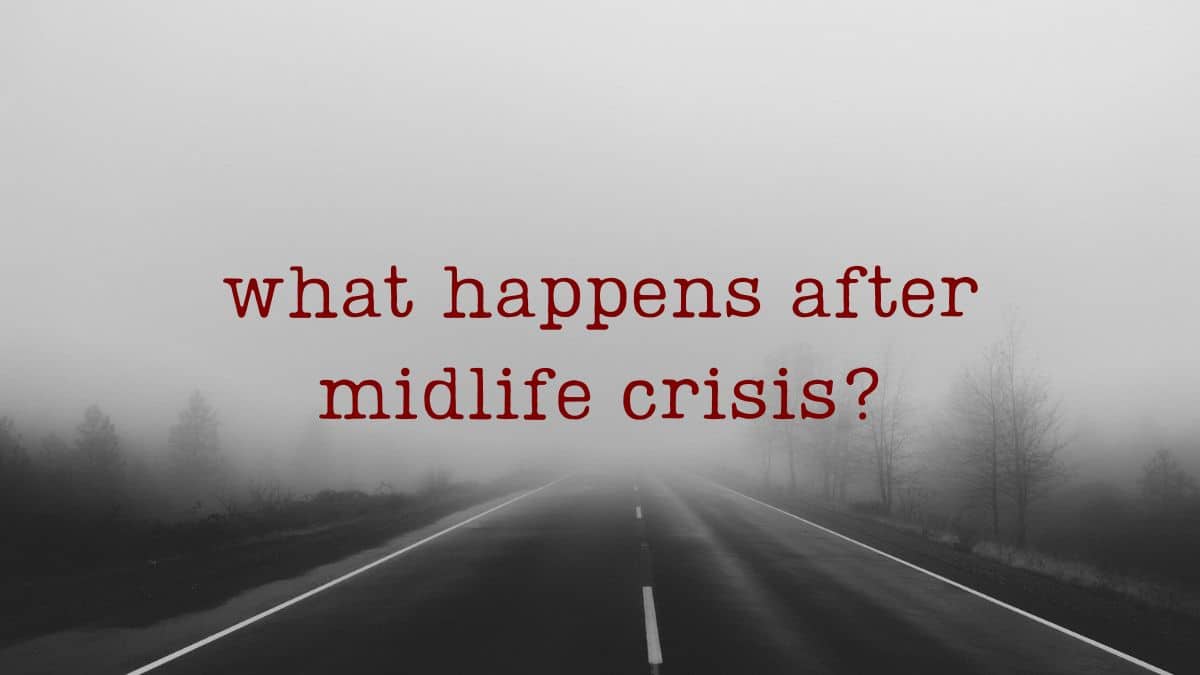
By now, you might be wondering what happens when the fog lifts and your spouse or partner comes out of the crisis?
You might have high hopes for long discussions, confessions, and heartfelt apologies.
The reality?
Most men and women just want things to get back to normal.
Yes, I know. It's easy to see the irony here - the very person who flipped your entire world upside down now wants nothing more than for everything to go back to normal.
Remove any expectations
Some spouses experience remorse, but they may not express it. Others are embarrassed by their behavior.
They might say things like "I knew it was wrong, but I couldn't stop myself".
Or "I don't know what I was thinking, I wasn't in my right mind".
But here's what you need to remember.
No - you did nothing to deserve this treatment.
But if you really love this person and want to rebuild your life with them, you need to RESIST any type of pressure, pushing for apologies or passive aggressive behavior.
When you understand the cause of a midlife crisis, it becomes much easier to empathize with your spouse because then - and only then - can you truly see how much pain they were in.
If you came from a healthy childhood home yourself, you have no painful experiences to draw from. No negative thoughts that you're not good enough.
No dark thoughts that you don't DESERVE better.
It's easy to look at a midlife crisis as an outsider and chalk it up to classic narcissism or post postpartum depression. But it's much more and it goes deeper than that. Much deeper.
Instead, take a different approach. Focus on forgiveness.
Get out of the world of against energy and move into a state of acceptance and gratitude. If you don't appreciate what you have, you'll never be happy.
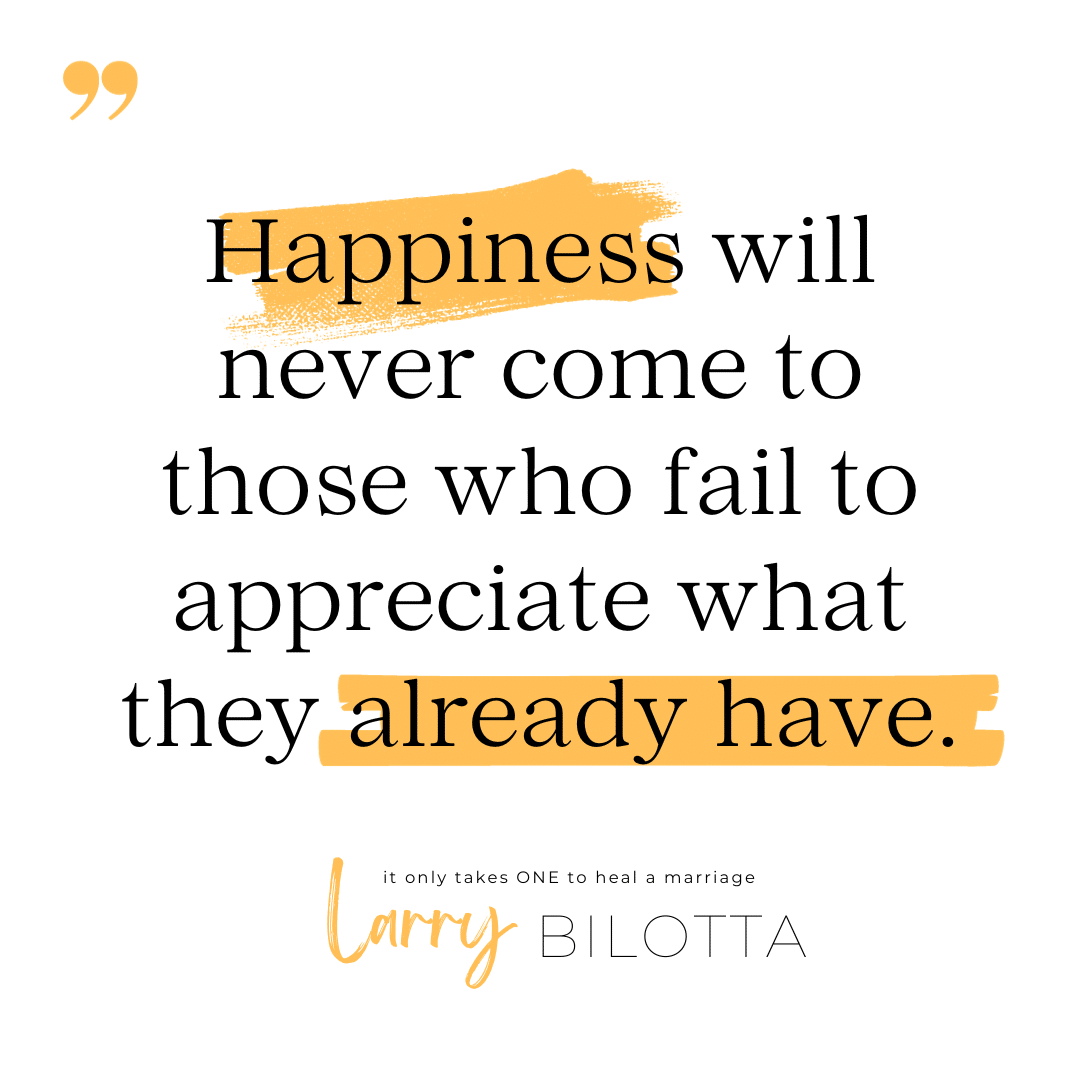
Did this article help you fill in some missing pieces?
Let me know in the comments below what you're faced with and how this has helped you.


